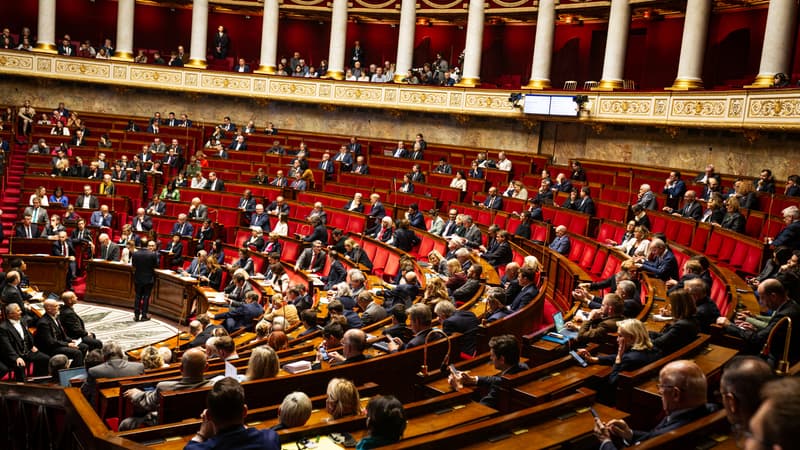The parliamentary battle has begun: the Finance Commission of the National Assembly begins this Monday, October 20, to examine the draft state budget for 2026, in a climate of exacerbated political antagonism and tight deadlines.
After the failure of the censorship of the minority government of Sébastien Lecornu, the political groups propose to profoundly modify a budget project considered unsatisfactory, presaging electric exchanges between a fractured common base, a left crossed by tensions and an extreme right favorable to a union of the right.
On Friday, another piece of information was added to the table: the rating agency S&P announced that it would lower France’s rating by one level, alleging a “high” uncertainty about public finances, and this “despite the presentation this week of the draft budget for 2026.”
70 days to examine the PLF
For next year, the Government intends to make a global effort of around thirty billion euros, between new taxes (14 billion) and spending savings (17 billion), to reduce the public deficit to 4.7% of the gross domestic product (GDP). I would agree to relax this target to “below 5%” to allow for compromises.
From Monday at 9 a.m. until Wednesday evening, the Finance Committee will examine the first part of the Finance Bill (PLF), the one dedicated to revenue, for its arrival in the chamber on Friday and a solemn vote on November 4. The spending review will follow and then the Senate.
The Government promised to leave the last word to Parliament, renouncing article 49.3 of the Constitution, which allows the adoption of a text without a vote. Elected officials have a total of 70 days to examine the PLF from the presentation of the text to the National Assembly on October 14, that is, until December 23, with promulgation before December 31.
“Very unfair”
Among the PLF measures are a control of state spending (except for defense), the maintenance of an exceptional tax on high incomes and, partially, a surtax on the profits of the largest companies, a tax on asset-holding companies, the freezing of the income tax scale, a flat-rate reduction in the income of retirees or the elimination of more than 3,000 civil servant positions.
The left will defend “the same will to correct a very unfair budget”, declared the head of the PS, Olivier Faure, who avoided censure in the government in exchange for a suspension of the pension reform.
The socialists have already announced that they will present an amendment to the PLF that provides for the establishment of a Zucman tax, rejected by the Prime Minister. This tax, named after the economist Gabriel Zucman, provides for paying a minimum tax of 2% of this wealth to the 1,800 taxpayers with at least 100 million euros in wealth, including professional wealth.
In the national demonstration we promise to “fight step by step to protect the French.” “Article by article, amendment by amendment (…) we will do everything possible to avoid damage, taxes and sacrifices,” warned deputy Jean-Philippe Tanguy.
In total, deputies presented around 1,800 amendments. But the inadmissibility of some of them could reduce the number.
“The real issue will be the session” in the chamber, the president of the finance commission, the rebel Éric Coquerel, stressed on Sunday in franceinfo, because the deputies will then start from the government’s initial copy.
“Balance”
The government side is calling for a compromise. “Not having a budget would be admitting enormous collective impotence,” warned the Minister responsible for Public Accounts, Amélie de Montchalin, in an interview in Ouest-France on Saturday.
For its part, the Social Affairs Commission will debate the social security financing bill (PLFSS) starting Thursday, after Tuesday’s hearing of the ministers concerned.
The text contains savings in every sense: freezing pensions, increasing the cost of medicines and consultations or increasing the business contribution to restaurant vouchers and holiday bonuses.
It will be in November when the government will present an amendment to suspend the pension reform.
If Parliament does not decide within the deadline (50 days for the Social Security budget), the government can execute the budget by ordinance. A special law could also be passed allowing the state to continue collecting existing taxes next year, while its spending would be frozen, pending the vote on an actual budget.
Source: BFM TV


